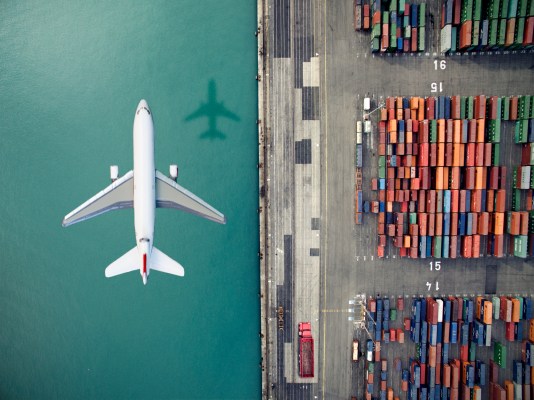Fleet, a startup focused on making international logistics less onerous for small companies, announced that it has raised a Series A of $10 million. The round was led by Lufthansa Cargo, the German airline’s air cargo subsidiary, with participation from new and returning investors Hunt Technology, UPS, UP2398 and 1517 Fund.
The Portland-based company’s last funding announcement was in April 2016, for a $4 million seed round led by Hunt Technology Ventures. Its Series A brings Fleet’s total raised so far to $14 million. Founder and chief executive officer Max Lock tells TechCrunch that the capital will be used to launch Fleet GDS, which he says will be the “industry’s first global distribution system that links rates, automates bookings and documentation for shippers and logistics providers on a single, seamless platform.” The company also plans to launch an air freight platform next month, with Lufthansa Cargo as one of its partners and service providers.
Lufthansa Cargo’s chief commercial officer Alexis von Hoensbroech has also joined Fleet’s board of directors. In a press statement, Lufthansa Cargo CEO Peter Gerber said “Fleet Logistics is a perfect match for us as the company combines innovative and visionary thinking with a strong intrinsic motivation to improve air cargo booking and shipping efficiency and, finally, our customers’ overall experience. We expect substantial learnings with regard to our product and service portfolio. Thus, we are sure that Lufthansa Cargo and Fleet will mutually benefit from sharing concepts and ideas.”
Then called Shipstr, Fleet launched at Disrupt San Francisco in 2014, where it made it to Startup Battlefield’s final round. Lock first encountered the logistics nightmares many small import-export businesses deal with while running Schoolboy Ice Cream, which sold frozen desserts to Whole Foods and other distributors. When other food businesses began asking him to import paper cups from Chinese manufacturers, Lock discovered that the cost of booking freight forwarders, who in turn need to book third-party services like warehouses, custom brokers and trucking firms, quickly adds up, and that there is very little transparency in the process.
Fleet was originally created to connect small businesses with freight brokers for international cargo shipments, but it changed its name and business model and launched a marketplace in July 2015 that allows businesses to compare freight forwarders (the agents that arrange the warehousing and shipping of international cargo), manage shipments and leave reviews. There are now more than 500 freight forwarders on Fleet’s platform. The company claims that it can help businesses that make about five to 100 shipments per year save up to $30,000 and 800 hours annually by reducing the amount of time it takes to get quotes from service providers, set up and manage accounts and track shipments across the world.
The startup is building Fleet GDS because the logistics industry “is lacking a technical infrastructure,” Lock says. He explains that many companies along the supply chain have their own proprietary software and use EDI (electronic data interchange) to send information back and forth, a cumbersome, time-consuming process Fleet GDS is meant to fix. Since airlines, warehouses and trucking firms are unlikely to stop using their existing systems, that means the logistics industry needs to solve its own communication problem. Fleet GDS wants to accomplish this by linking major services like rates, capacity, bookings and documentation across every step of the logistics supply chain, including warehouses, trucks, airlines, ocean carriers and customs brokers.
Lock says that Fleet GDS will allow Fleet to continue differentiating from other startups using tech to solve logistics challenges (such as Freightos, Flexport and Haven) because it enables importers, exporters and freight forwarders to communicate directly with the service providers that are currently handling their cargo. In addition to making the process more efficient, Lock believes that it will also increase trust and transparency in the traditionally opaque logistics supply chain.
